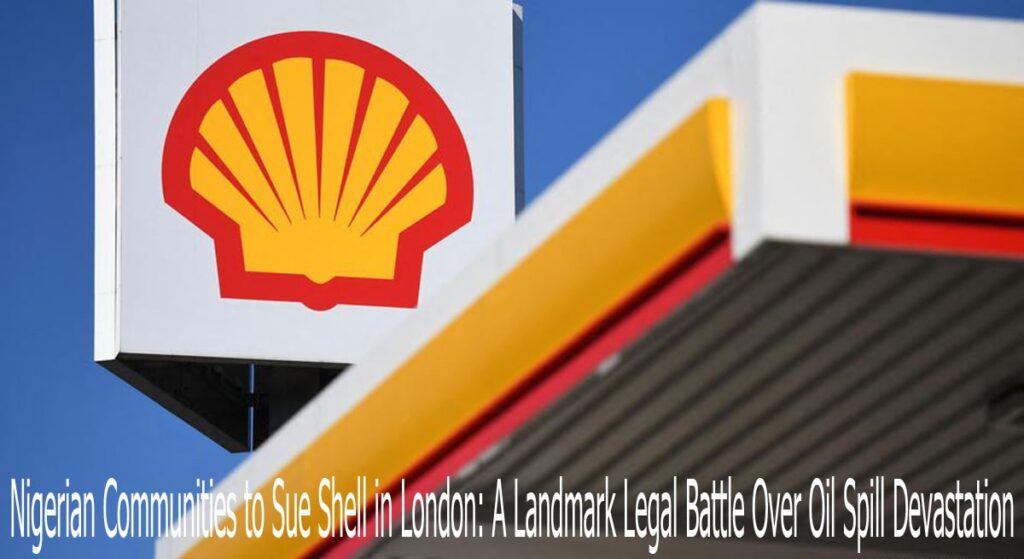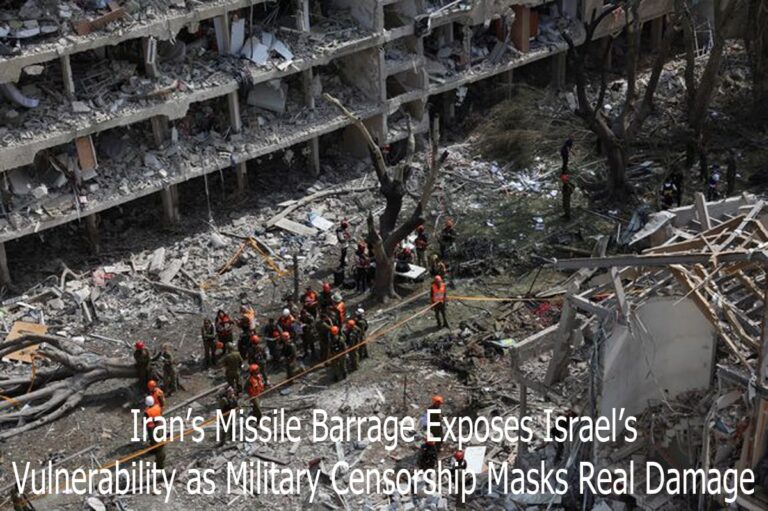
Nigerian Communities to Sue Shell in London
In a landmark legal showdown, two Nigerian communities are taking oil giant Shell to the High Court in London over decades of environmental devastation caused by oil spills in the Niger Delta. The case, which officially began with preliminary hearings in February 2025, marks a significant moment in holding multinational corporations accountable for pollution and human rights violations abroad.
Residents of Ogale and Bille, in Nigeria’s oil-rich but highly polluted Delta region, have accused Shell and its subsidiary, Shell Petroleum Development Company of Nigeria (SPDC), of creating widespread oil contamination that has destroyed their means of subsistence, environment, and health.
This lawsuit follows a 2021 ruling by the UK Supreme Court, which cleared the path for affected communities to seek justice in British courts. Approximately 50,000 residents are represented in the legal action, demanding compensation, environmental cleanup, and accountability for years of suffering.
The Environmental Toll of Oil Extraction
For decades, the Niger Delta has been synonymous with oil wealth and environmental catastrophe. According to a comprehensive United Nations Environment Programme (UNEP) report, Ogoniland—where Ogale is located—suffers from extreme contamination. Groundwater samples from the area revealed hydrocarbon layers up to 8 centimeters thick floating atop drinking water sources. Benzene concentrations, a known carcinogen, were recorded at levels 900 times above the World Health Organization’s safety threshold.
The mangroves, once a thriving ecosystem supporting fisheries and agriculture, are now coated in crude oil. Farmlands are barren, fishing grounds depleted, and families are forced to rely on contaminated water for daily needs. With crops failing and fish stocks vanishing, thousands have lost their primary sources of income, plunging communities into poverty.
The Human Cost: Lives Destroyed by Pollution
Residents and local officials say the situation is serious. Godwin Bebe Okpabi, a prominent member of the Ogale community, noted outside the London court that “people are dying in Ogale.” “Polluted water and land have destroyed our way of life and caused diseases in our children.”
Mothers report chronic skin diseases among their children, frequent diarrhea outbreaks, and respiratory illnesses—direct consequences of long-term oil exposure. The economic hardship, combined with health crises, has turned life in the once-fertile Niger Delta into a daily struggle for survival.
Shell’s Defense: Blaming Sabotage
Shell, one of the world’s largest oil companies, has denied direct responsibility for much of the pollution, attributing the oil spills to third-party sabotage and oil theft. In a statement, Shell emphasized that SPDC has invested in oil spill response and prevention, including pipeline monitoring and community development programs.
However, independent investigations and environmental assessments argue otherwise. Experts have linked many of the spills to aging infrastructure, poor maintenance, and inadequate response mechanisms. UNEP’s findings highlighted Shell’s failure to properly clean up contaminated sites or provide safe drinking water, despite recommendations issued years ago.
A Global Legal Precedent
Similar legal issues Shell has encountered globally are echoed in the London litigation. A Dutch appeals court found Shell Nigeria accountable for oil leaks in Oruma, Goi, and Ikot Ada Udo, three more Delta communities, in 2021. The court mandated that Shell enhance pipeline safety protocols and provide restitution to impacted farmers.
In 2023, Shell agreed to pay €15 million ($16.5 million) in compensation to those communities, setting a historic legal precedent for transnational environmental accountability. The ruling strengthened the argument that parent companies can be held liable for the actions of their subsidiaries in foreign countries—a key aspect of the ongoing London trial.
According to legal experts, the case has the potential to change corporate responsibility globally. “If the High Court rules in favor of the Nigerian communities, it will be a turning point for environmental justice,” said Sarah Greenfield, a legal analyst specializing in corporate responsibility.
Beyond the Courtroom: The Fight for Justice Continues
The people of Ogale and Bille are hopeful that their struggle will result in both monetary restitution and a thorough environmental rehabilitation of their native country.
Environmentalists argue that Shell’s planned divestment from onshore oil operations in Nigeria should not absolve the company of its obligations to clean up existing damage.
Human rights groups, including Amnesty International, have long accused Shell of exploiting weak regulatory environments in developing countries while enjoying legal protections in its home base. The London lawsuit represents a broader battle to close those legal loopholes and ensure justice for vulnerable communities.
As the hearings progress, the world watches closely. For the people of the Niger Delta, this case is more than a legal dispute—it is a fight for survival, dignity, and the right to live free from the shadow of corporate negligence.






